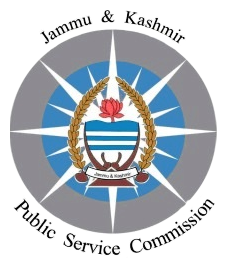| JKPSC | |
 | |
| Constitutional body overview | |
|---|---|
| Formed | 2 September 1957 |
| Jurisdiction | Government of Jammu and Kashmir |
| Headquarters | Solina, Srinagar, Jammu and Kashmir 34°03′19″N74°47′58″E / 34.0551733°N 74.7995805°E |
| Motto | being fair to all and being seen as such [1] |
| Constitutional body executive |
|
| Parent department | Government of Jammu and Kashmir |
| Website | jkpsc |
The Jammu and Kashmir Public Service Commission (JKPSC) is a constitutional body of the union territory of Jammu and Kashmir, India, established by the Constitution of Jammu and Kashmir under articles 128 to 137. [3] [4] It is an autonomous body responsible for the recruitment of candidates for various government jobs under the Government of Jammu and Kashmir through competitive examinations, according to the merits of the candidates and the rules of reservation. [5] [6]
